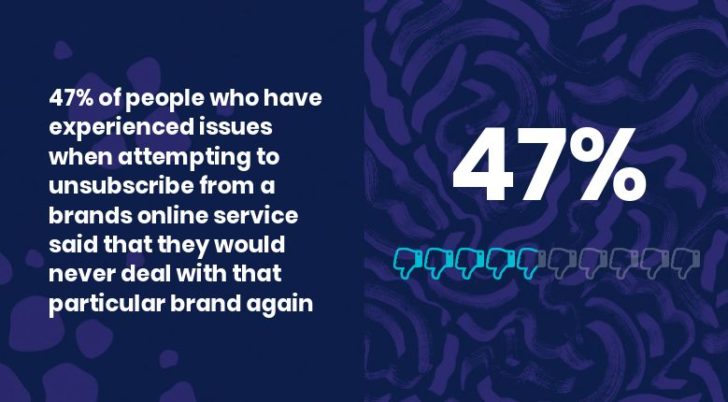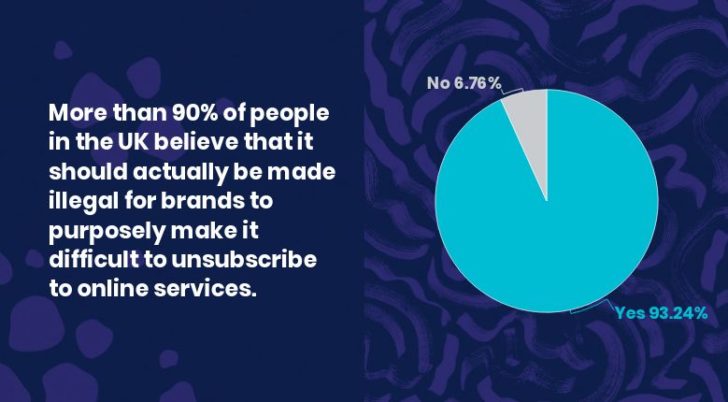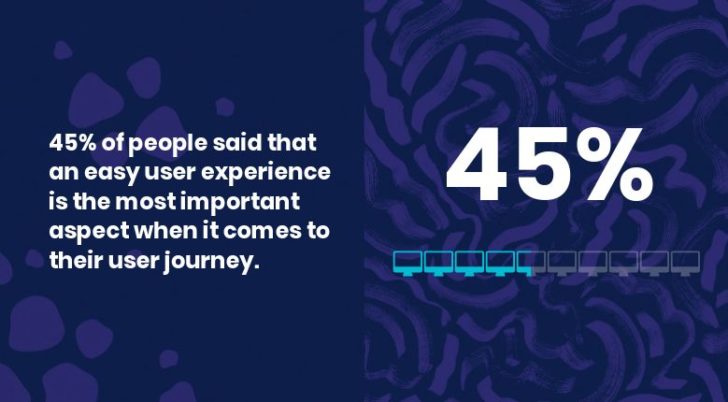30-second summary:
- Even though brands have grasped the importance of UX, not all brands are doing it the right way.
- A new report released by ecommerce design specialists Xigen has revealed that UK consumers feel they are being tricked by brands using what are considered dark UX patterns.
- A huge 90% of people in the UK believe that it should actually be made illegal for brands to purposely make it difficult to unsubscribe to online services.
- Insights on why brands are using dark UX patterns despite the negative impact, what consumers are really looking for, and how brands can improve the user experience in totality.
In this day and age, website functionality is bigger and better than ever. Sites and brands alike have grasped the importance of UX and understand the ability it has to transform their business. However, it seems not all brands are doing it the right way.
A new report released by ecommerce design specialists Xigen has revealed that UK consumers feel they are being tricked by brands using what are considered dark UX patterns. For example, have you ever found yourself subscribed to a newsletter you never actually subscribed to? Did you then have to jump through endless hoops in a bid to unsubscribe? This is just one example of a dark pattern, referred to as the ‘Roach Motel’ tactic.
How is using dark patterns affecting brand reputation?
Dark patterns such as these have varying impacts on a brand’s reputation as well as customer retention. The report reveals that 47% of people who have experienced issues when attempting to unsubscribe from a brand’s online service said that they would never deal with that particular brand again. Further to that, a huge 90% of people in the UK believe that it should actually be made illegal for brands to purposely make it difficult to unsubscribe to online services.


It is clear that by implementing dark patterns, brands are treading on particularly uncertain ground, as the result of doing so could have a detrimental impact.
Why are brands using dark patterns if the results are so negative?
The digital world is awash with dark patterns and using these tactics has been common practice for a long time, for many brands. These misleading practices were not born online however, as they have been used in the world of sales for years before the internet even existed.
Brands are employing these tactics as they are a sure-fire way for them to reach targets and hit KPIs. It gives them the upper hand by enabling them to lure their customers into taking specific actions on their site.
In short, money is the answer here. Brands will put these dark patterns in place to ensure they are converting sales and keeping customers exactly where they want them.
Which patterns are bothering consumers most?
There are a number of dark patterns that consumers will come across on a daily basis such as trick questions, price comparison prevention and disguised ads, but the report revealed which tactics consumers found the most infuriating.
- Pop-up ads – 43%
- No visible contact details – 31%
- Poor returns process, for example, hidden delivery info
- Convoluted submission process – 23%
- Autoplay videos – 22%
So what is the consumer really after?
45% of people said that an easy user experience is the most important aspect when it comes to their user journey. Therefore it is clear that consumers are looking for honesty and simplicity when it comes to their online experiences.
Much like brands themselves, consumers tend to have one goal – to get on a site, find what they want, buy it and leave. If their time on the site is positive, there’s a far better chance they’ll return over and over again.

How can brands improve user experience (UX)?
User experience (UX) is so important for brands so it makes sense for them to always be improving and reviewing which tactics are working and those that aren’t.
Here are a few ways in which brands can improve their UX patterns
- Be transparent, it is what Consumers want, if they feel like they are being deceived, they will simply look elsewhere.
- Implement an easy user experience and open and honest terms and conditions as these feature within users’ top website features.
- Develop the product on offer to ensure it’s of the optimum quality and always practice honest design.
If you’ve found these pointers and insights useful, don’t forget to drop a comment or share your views.
Xigen is a UK based ecommerce and digital marketing agency that specializes in design, development, testing, marketing, and support for high-performance ecommerce websites.
The post How dark UX patterns are ruining brand loyalty among UK consumers appeared first on Search Engine Watch.

